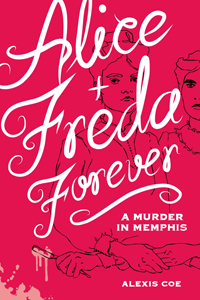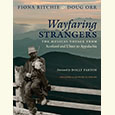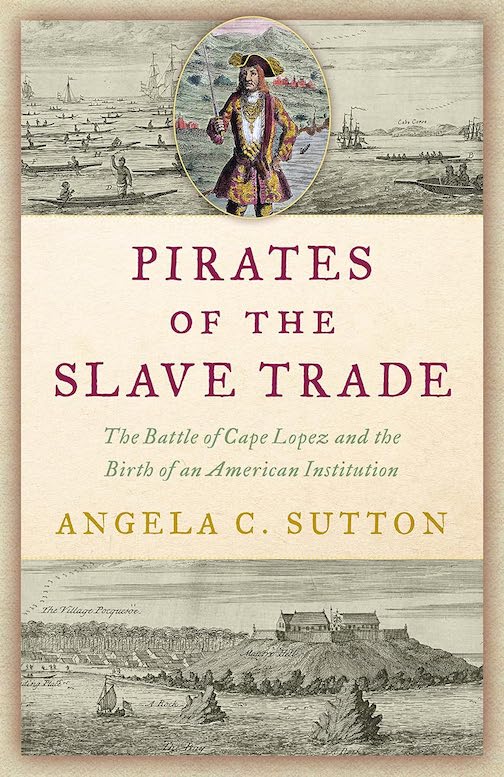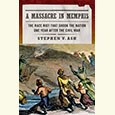An Impossible Idea
Alexis Coe talks with Chapter 16 about Alice + Freda Forever, a true tale of crime in Gilded-Age Memphis
One sunny January afternoon in 1892, while the city of Memphis was shaking off a cold spell, one well-to-do teenage girl, Alice Mitchell, walked up to another, Freda Ward, and slit her throat from ear to ear in plain view of everyone on the busy sidewalk. The pair had once been secretly engaged, but Freda’s older sister and brother-in-law had foiled their plans to elope. Freda seemed content to let the matter drop, while a devastated Alice pined away—and eventually pocketed her father’s razor. Using court documents and newspaper reports, as well as Alice and Freda’s own correspondence, Alexis Coe brings the case and its socio-historical context to life in her new book, Alice + Freda Forever: A Murder in Memphis.
 The murder and its attendant legal proceedings made national headlines not primarily because of the crime itself but because of Alice’s motive: homosexual love and jealousy. While the prosecution offered evidence of a crime of passion, the defense’s case rested on a widespread belief that homosexuality is a symptom of madness, a defense backed up by “expert” medical testimony and championed in the press: Alice was “the slave of a passion not normal and almost incomprehensible to well-balanced people,” proclaimed the Appeal Avalanche. (The same paper derided the presence of women in the courtroom: “The best place for ladies to sit during the trial is about four feet from the hearthstone.”)
The murder and its attendant legal proceedings made national headlines not primarily because of the crime itself but because of Alice’s motive: homosexual love and jealousy. While the prosecution offered evidence of a crime of passion, the defense’s case rested on a widespread belief that homosexuality is a symptom of madness, a defense backed up by “expert” medical testimony and championed in the press: Alice was “the slave of a passion not normal and almost incomprehensible to well-balanced people,” proclaimed the Appeal Avalanche. (The same paper derided the presence of women in the courtroom: “The best place for ladies to sit during the trial is about four feet from the hearthstone.”)
Prior to her forthcoming events in Memphis and Nashville, Coe recently answered questions from Chapter 16 by email:
Chapter 16: When you first began to read about this case, what surprised you most about the way it was presented in the media of the day?
Alexis Coe: When I began collecting articles about Alice and Freda, I found the sensational headlines and paltry fact-checking to be consistent with what I knew about yellow journalism on a national level. Names were regularly misspelled and erroneous details presented as a fact. This was certainly the case in Memphis, but there were a couple of surprises. Alice’s lawyers were far better at crafting a sympathetic narrative supported by pseudoscience and questionable interviews. They skillfully released it to the press, waiting until they were so desperate for new information that they would practically reprint it word-for-word.
In the aftermath of the murder, the defense immediately focused on the Memphis Public Ledger, which was not only the oldest and most popular evening paper but also one dear to the presiding judge, who had worked there in his youth. A member of the defense had also been an early investor in the Memphis Commercial, which is emblematic of the relationship between powerful white Memphians and the local publishing industry. The district attorney’s office not only lacked connections but they often frustrated the press by withholding information.
Chapter 16: For an audience during the 1890s, this case was especially sensational because it presented a woman as a jealous lover, a role exclusively reserved for men. Was there anything about the case that seemed matter-of-fact to its contemporary audience but that we would find surprising or shocking today?
Coe: Thankfully, that’s a long list! I don’t think modern juries would accept asymmetrical features or left-handedness as further proof of insanity.
 Chapter 16: Most of the arguments in Alice’s case regarded her homosexuality as a sign of a “malformed mind”—a medical disorder. I would have expected religion and morality to play an even bigger role in the public discussion. Why do you think it didn’t?
Chapter 16: Most of the arguments in Alice’s case regarded her homosexuality as a sign of a “malformed mind”—a medical disorder. I would have expected religion and morality to play an even bigger role in the public discussion. Why do you think it didn’t?
Coe: At first, newspapers called Alice “too fast,” but when the defense framed her development as masculine, it became less important. Religion and morality, however, were very much at the forefront of Lillie Johnson’s hearing. Newspapers couldn’t decide if Alice’s best friend was a pious young woman in the wrong place at the wrong time, or a “fast” girl who should be kept from the chaste daughters of Memphis. Damning evidence included rumors that Lillie flirted with streetcar conductors and, like many young women of her day, answered ads placed by bachelors in the matrimonial papers.
Chapter 16: Whenever possible, you include Alice and Freda’s own words in your book as a way to bring their voices back into the conversation about this case, much of which has excluded them. How did it make you feel to read the letters they wrote to each other?
Coe: I was obviously aware of how their story ended, and yet the first time I read Alice and Freda’s letters all the way through, I was completely devastated. It was a slow-motion heartbreak with all the vexing signs—jealousy and infidelity—prominently displayed throughout their relationship. Still, I experienced their letters in different ways throughout the process. When I wrote about their engagement, I felt as hopeful as they seemed to be and concerned about the obvious faults in their plan. And while I feel terrible about it, there were times when I grew really frustrated with Freda, who was often careless with people’s feelings.
Chapter 16: “There are a lot of disadvantages to being a women’s historian, but one very clear advantage,” you’ve written: “There are countless overlooked or untold stories.” Of all those untold stories, what drew you especially to the tale of Alice and Freda?
Coe: Their tragic love story appealed to my romantic sensibilities, but the case was complicated by issues that have always captured my interest—race, class, gender, and mass media. Though Alice and Freda lived over 120 years ago, their world is sadly familiar to us. In the end, it was simply a story I felt compelled to tell.
Chapter 16: Have you decided which historical event to write about next?
Coe: Yes! I’m writing about a blacklisted economist who was forced to resign from the International Monetary Fund in the 1950s and, in a darkly funny turn of events, could only find work in the People’s Republic of China.

Stephen Trageser is a lifetime Middle Tennessee resident and a freelance writer. When he isn’t absorbed in a book, on behalf of Chapter 16 or just for fun, you’ll likely find him previewing or reviewing music for the Nashville Scene.





